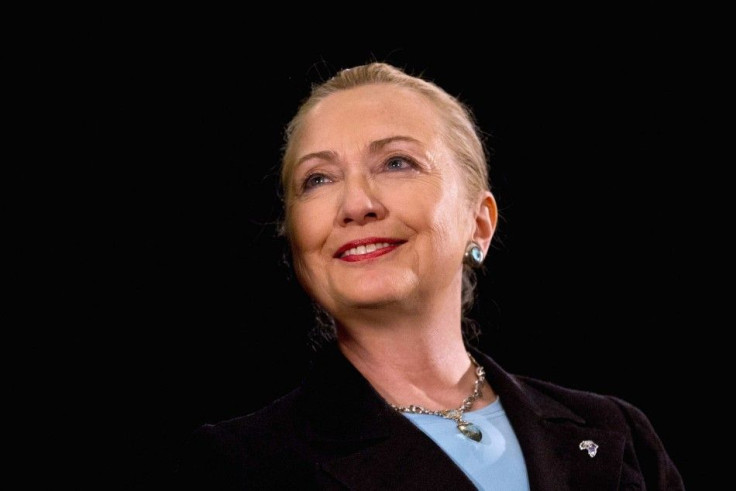What If It Were Hillary?
Opinion

It’s the question many Democrats have been silently asking themselves for four years now: What if things had tipped the other way during the 2008 primaries?
Would President Hillary Clinton have spent her political capital on costly health care reform in the middle of the worst economic recession in memory? Seems unlikely.
Given the embarrassing failure of the universal health care plan she spearheaded during her husband’s administration, it’s a safe bet that a President Hillary Clinton would never have risked repeating that failure. Instead, she would have focused on what was far more important to middle class Americans right now -- jobs.
For example, she wouldn’t have wanted to risk a health care bill that -- like Obamacare -- gives small businesses with fewer than 50 employees a strong incentive not to hire new workers. Not in the middle of a dire recession. She would have done the smart thing. It was the Clinton camp, after all, that made famous the phrase: “It’s the economy, stupid.”
Clinton may be a proud liberal, but she is also a pragmatist. She would have agreed with Rahm Emanuel, who, as chief of staff, reportedly advised the president in early 2011 to delay health care reform until the economy was out of imminent danger.
What’s the difference between Clinton and Barack Obama? Above all, it’s a matter of self-image. President Obama cast himself as a transformational figure, and, in office, the implied political destiny of “hope and change” rhetoric would not bear compromise or delay -- even in the midst of the worst economic collapse in three generations.
Clinton's view of herself is quite different. During the campaign, Clinton cast herself not as a transformational figure but as transitional figure -- hers would be just one more step along the road toward women’s equality. She never cast herself as a historic figure, although, arguably, she is one. The message of her campaign was, in a sense, that her gender was largely irrelevant. She had more experience than Obama. She was more qualified for the job. Period.
Who could forget the “3 a.m. phone call” campaign ad the Clinton campaign released in the summer of 2008? The message was clear: In the event of a security crisis, who do you want making the critical decisions -- the community organizer turned junior senator from Illinois or the tested and tried eight-year senator from New York?
Something like that “3 a.m. phone call” came in September, when our consulate in Libya was attacked and an ambassador and three other Americans were killed. Questions about the lack of security there remain. But in the aftermath of the Benghzai disaster, Clinton stepped forward to “take responsibility,” well before Obama publicly “took responsibility” during the ensuing presidential debate.
It was a poignant moment to see the secretary of state accept blame for the failure to respond to the attacks with military force. That blame surely must fall to the commander-in-chief. Meanwhile, she came so close to being that commander herself. It was like a brief glimpse of side-by-side comparison.
In 2008, Democrats went with the transformational man, not the transitional woman. But one wonders how different the last four years might have been for Democrats, if it had been the other way around.
I’ll admit to being one of those who watched with delight as the unknown Obama skyrocketed from nowhere to snatch the race from Clinton. I wasn’t a fan of hers.
And I figured the smooth-talking dreamer from Chicago would do less harm than a shrewd and battle-hardened D.C. insider. A lot of people felt that way.
We didn’t realize that Obama actually believed the hype surrounding his own candidacy. We didn’t realize that the man who spoke of uniting us would not consent to be limited by compromise. We didn’t see the arrogance. His stab at Clinton back then, that she was “likeable enough,” should have been a clue.
Obama never understood that the defining issue of his presidency was the economy. It wasn’t big enough for him, not historical enough. While the country suffered record levels of unemployment, Obama’s focus remained, oddly, elsewhere. Obama’s focus should have been jobs, jobs, jobs. But, all along, Obama set other priorities.
In line with his self-image as a transformational figure, he was bent on big-time transformation. Big health care. Big green energy. In a booming economy, it might have played out differently. But in the middle of a nationwide economic emergency, it was a disaster for Democrats. What Enron was for Bush, Solyndra has now become for Obama -- an election-year albatross.
Turns out, in a crisis, it pays to have a pragmatist, not a dreamer, in the White House. Not coincidentally, it’s Mitt Romney’s image as a practical, business-minded problem-solver that is fueling his lead among independent voters this year.
It’s the economy, stupid. That’s what Americans care about right now.
If only we had picked Clinton. That’s what many Democrats are thinking right now.
Nathan Harden's new book, "Sex & God at Yale: Porn, Political Correctness, and a Good Education Gone Bad" (St. Martin's, 2012), was recently named a New York Times Editor's Choice Pick. He is an editor of The College Fix.
© Copyright IBTimes 2024. All rights reserved.





















